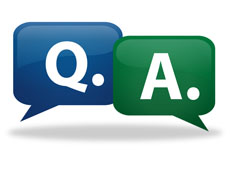Aditya Shah, director of Middle East operations at Yardi, writes on the rise of Cloud-based technology in FM activities. Tenants and residents within both, the commercial and residential real estate sectors continue to have rising expectations for technology – most notably about how it will impact service levels and enhance their customer experience and occupancy. From a management perspective, a competitive environment breeds the need for faster customer-focused services that are highly efficient to streamline operations and reduce costs, while also improving overall returns. While technology has played a role in the field of FM for a number of years, the advent of the smart apps and an ever-increasing drive towards mobility has seen some seriously significant developments – ones that offer this particular section of the real estate industry much more than just improved productivity. The Cloud is here – it has been for some time – and more and more businesses are adopting cloud-based solutions as the cornerstone to enhance numerous aspects of their operations. Mobility undoubtedly offers managers a far greater level of flexibility than ever thought before, and with all these technologies working in synergy, a facilities manager is now no longer reactive, but can manage their day-to-day operations for properties, entire portfolios, and tenants and residents with proactive foresight. The solutions that are born out of this ever-evolving environment can boost customer loyalty by improving speed of response, driving down the cost of processes and procedures, and delivering a degree of flexibility and scalability to suit a wide range of business models. While adoption was previously slow, the sector is embracing these opportunities. Managers and engineers can engage in workflows that improve productivity and time management – be that for scheduling preventative maintenance, allocating proximity-related tasks, recording evidence, or...
Yardi SaaS Answers
New offerings for clients
Yardi Systems has announced that the company will now offer Voyager S in two types of Software as a Service – Yardi SaaS and Yardi Saas Select – for clients in the residential and commercial realms. The move is a logical one for Yardi, since we have a longtime track record of providing cloud services for clients. Over 2,000 businesses are supported via cloud today. Clouds are the most popular vehicle for delivering our products, and it’s exciting to take our clients to the future with a SaaS solution. Like any software transition, the move brings up questions for our clients that we are happy to answer. Below find the responses to some of the inquiries we’ve received so far via our social media channels. How does this differ from the existing ASP product? The closest offering to our current ASP model is SaaS-Select. This deployment orientation provides the client with their own database and their own program version. In other words, these items are dedicated to the client and they’re not shared with others. This orientation allows the client to “select” their own program versions and to upgrade those versions at a pace dictated by the client. The principal difference between ASP and SaaS-Select is that the SaaS environment will house Yardi’s newer version of Voyager, Voyager S. This new version of Voyager contains compatibility with SQL Server Reporting Services, a new look and feel, and, in the future, the possibility for compatibility with browsers other than Internet Explorer. Where do products like Orion, Mobility, and PayScan fit into Voyager S? This is a great question because of our recent announcement regarding our launch of Orion which will be available on SaaS Select; all of our mobility options will work in SaaS or...


